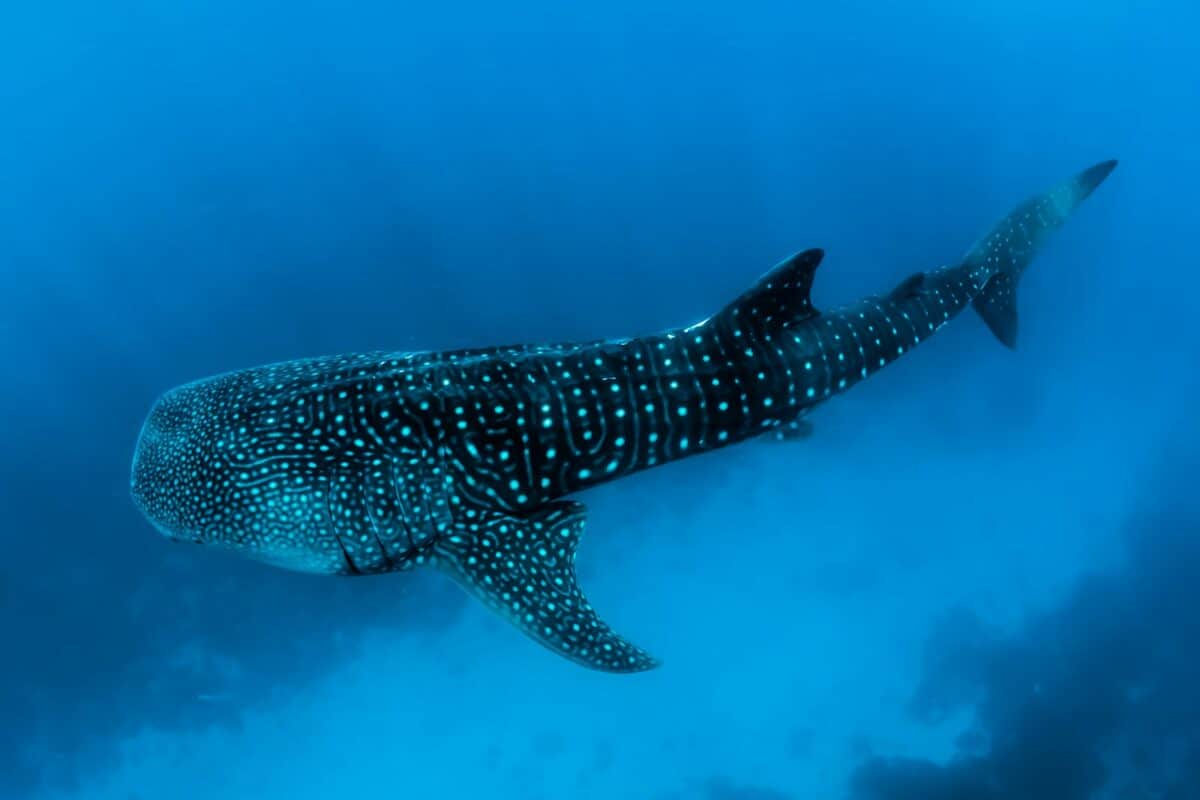The vastness of the ocean conceals countless wonders, and among its greatest inhabitants are whale sharks, the largest fish in existence. Recently, Pacific waters were graced by the presence of one of the most massive whale sharks ever recorded. This rare sighting captivates both marine biologists and ocean enthusiasts, sparking discussions about these gentle giants and their critical role in marine ecosystems.
The Magnitude of the Sighting
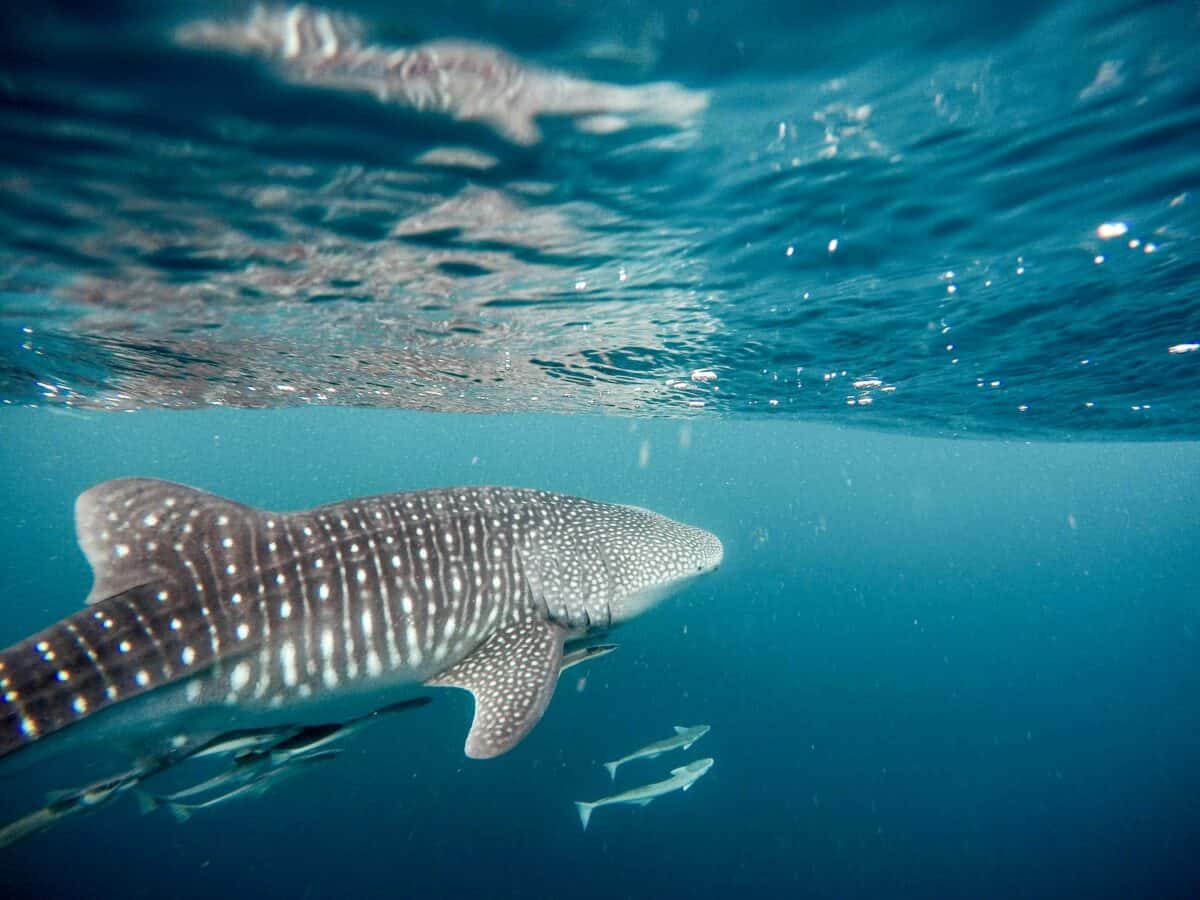
The sighting of this colossal whale shark occurred off the coasts of the Pacific Ocean, sending waves of excitement and wonder through the scientific community. Measured at approximately 60 feet in length, this whale shark dwarfs the average-sized individuals, which typically range between 18-33 feet. This record-breaking discovery offers a remarkable opportunity to study the characteristics and habits of these majestic creatures.
Whale Sharks: Gentle Giants of the Sea
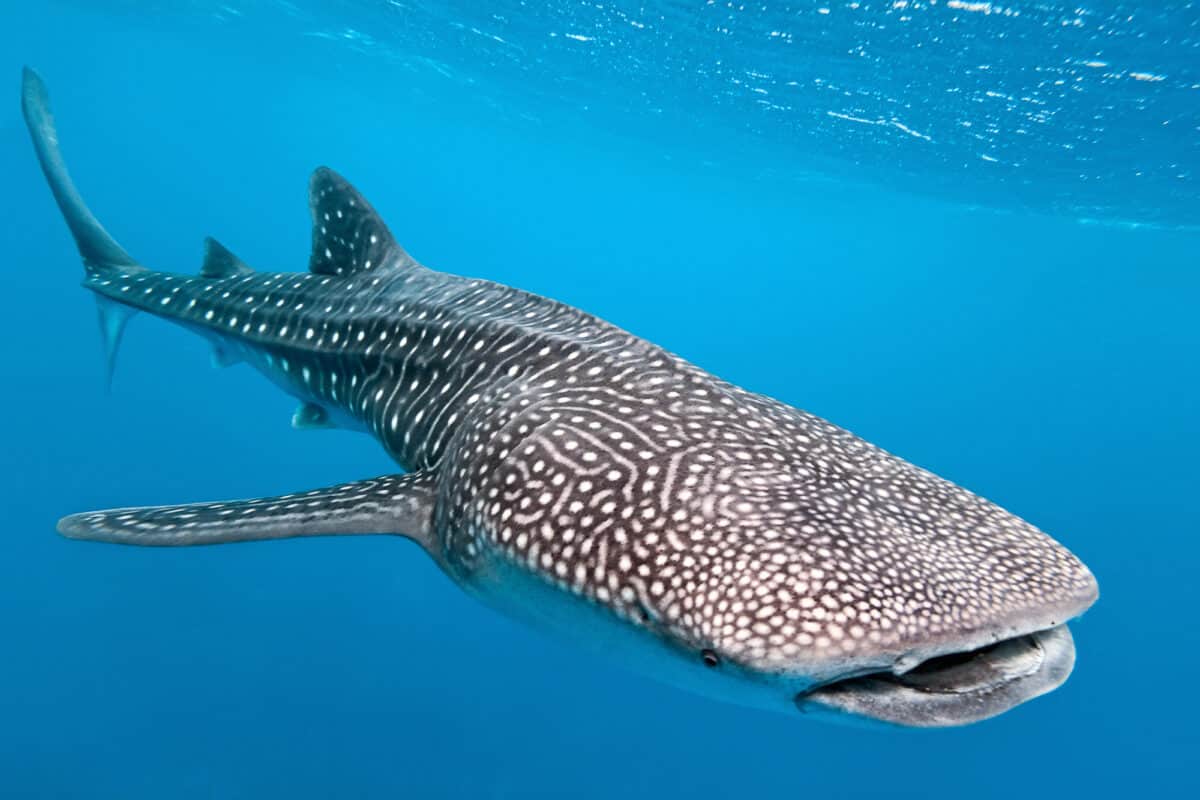
Despite their enormous size, whale sharks are known for their gentle demeanor. As filter feeders, they pose no threat to humans, subsisting primarily on a diet of plankton, krill, and small fish. Their docile nature and awe-inspiring presence make them a beloved subject for scuba divers and marine tourists worldwide.
The Importance of Whale Sharks in Marine Ecosystems
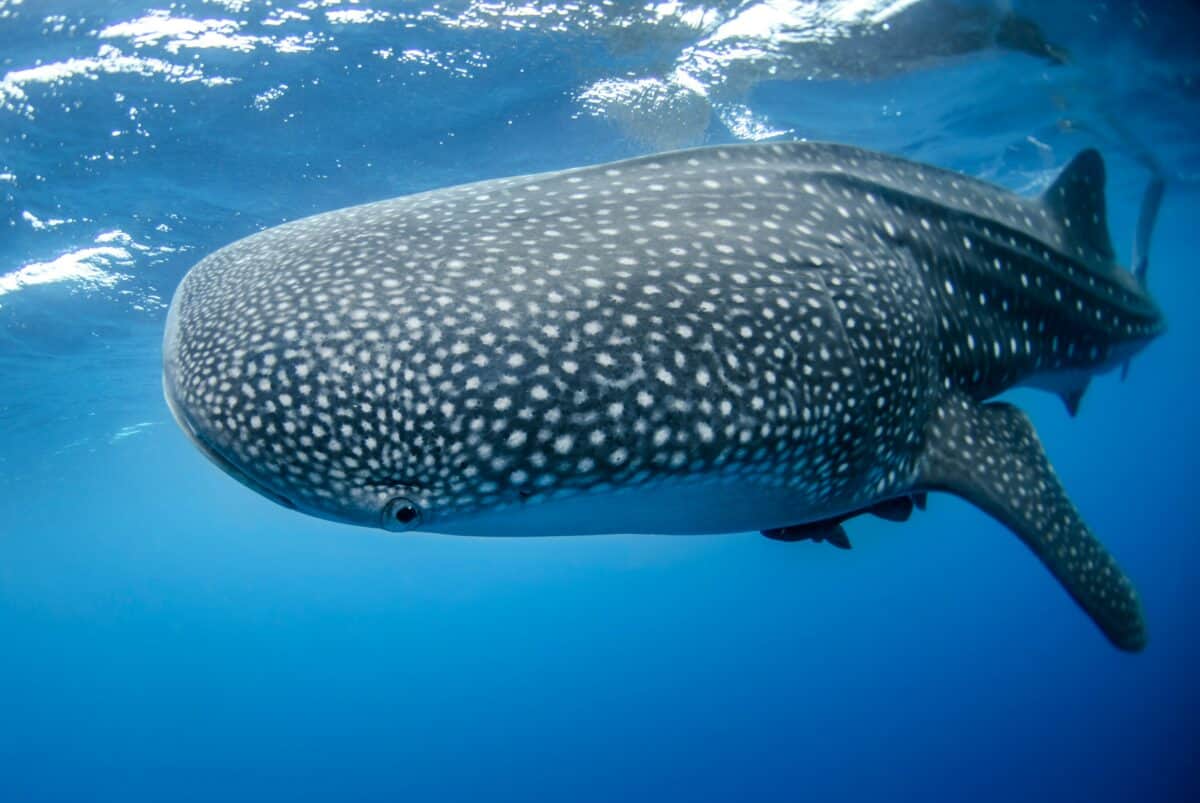
Beyond their grandeur, whale sharks play a crucial ecological role in oceanic ecosystems. By consuming vast quantities of plankton, they help maintain the balance of marine food webs. This ecological function underlines the importance of protecting these magnificent creatures from threats that endanger their populations.
Where to Spot Whale Sharks
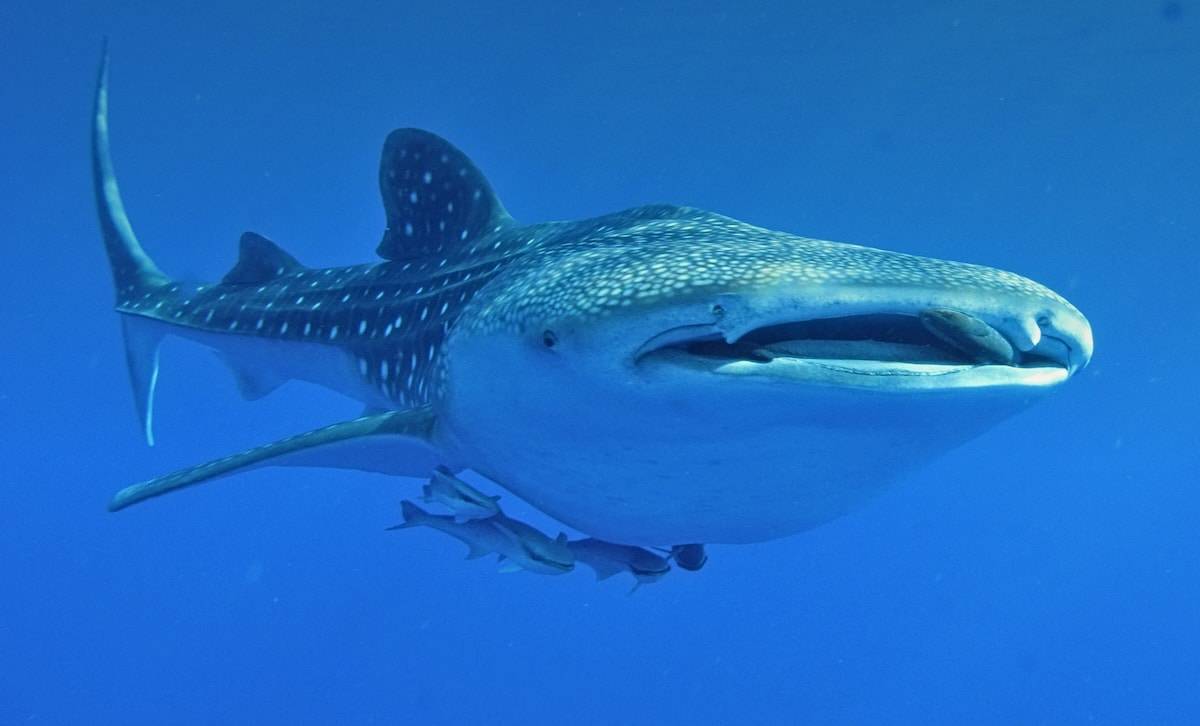
Whale sharks are known to traverse tropical and warm-temperate seas, often spotted in areas such as the Gulf of Mexico, the Maldives, and the Philippines. However, the sighting of such a massive individual in Pacific waters highlights the diversity and unpredictability of their migratory patterns.
Migratory Mysteries of Whale Sharks

Whale sharks are notorious for their long migrations, though much about their journeys remains a mystery. Researchers continue to study their movement patterns to understand better their breeding and feeding behaviors. Tagging and tracking technologies offer glimpses into their travel habits, providing valuable data for conservation efforts.
Threats Facing Whale Sharks

Despite their captivating presence, whale sharks face numerous threats that jeopardize their survival. Overfishing, habitat destruction, and pollution are significant challenges affecting their populations. Additionally, their slow reproductive rates make it difficult for populations to recover from declines.
Conservation Efforts for Whale Sharks

Global conservation initiatives aim to protect whale sharks through various strategies, including marine protected areas, fishing regulations, and international cooperation. Raising public awareness about their plight is crucial to garnering support for these efforts, ensuring a safe future for these gentle giants.
The Role of Citizen Science in Whale Shark Conservation
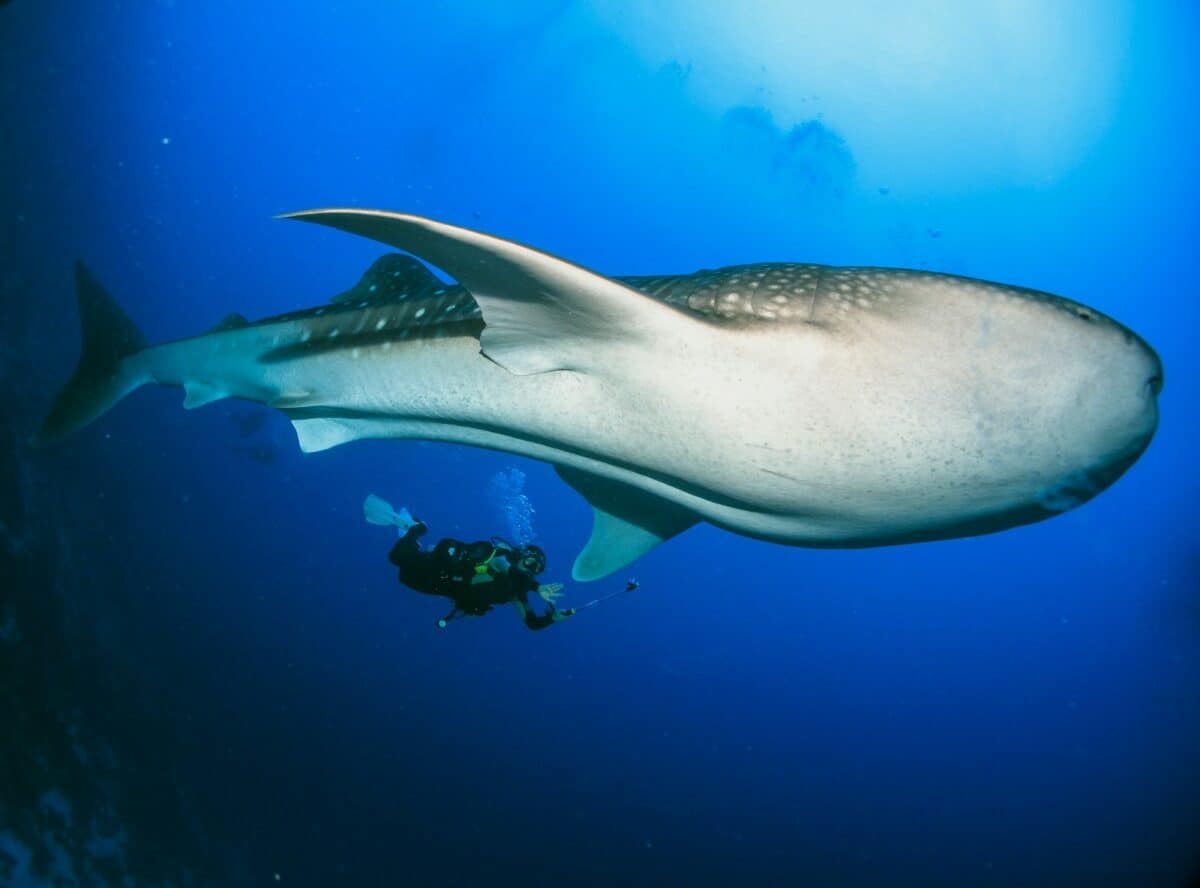
Citizen science projects have emerged as valuable tools in studying and preserving whale sharks. Enthusiasts and tourists who encounter these creatures are encouraged to report sightings, contributing to databases that help researchers track their populations and movements. This collaborative approach enhances conservation efforts and fosters a deeper appreciation for marine life.
Technological Advances in Studying Whale Sharks

Innovative technologies are revolutionizing the study of whale sharks. Satellite tracking, drones, and underwater cameras provide unprecedented insights into their behavior and habitats. These advancements offer hope for unlocking more of the mysteries surrounding the life cycles of these enigmatic creatures.
Whale Sharks in Culture and Mythology

Throughout history, whale sharks have captivated human imagination, often appearing in folklore and mythology across various cultures. Their sheer size and presence have inspired countless tales and legends, underscoring their long-standing fascination with humanity and their cultural significance.
The Future of Whale Sharks

The recent sighting of the most massive whale shark in Pacific waters serves as a poignant reminder of the wonders still hidden beneath the ocean’s surface. As efforts to study and protect these animals continue, fostering a global sense of stewardship is vital to ensuring their survival. By working collectively, we can preserve the awe-inspiring presence of whale sharks for generations to come.
The grandeur of the whale shark, epitomized by this remarkable sighting, invites us to reflect on our relationship with the natural world and the steps we must take to protect it. In appreciating these ocean titans, we uncover the importance of conservation and the enduring mystery of our planet’s marine life.
- Why Some Animals Hold Funerals for Their Dead - August 16, 2025
- This Massive Crocodile Fossil Dwarfs Anything Alive Today - August 15, 2025
- From Symbol to Supper: The Cultural Journey of the Chicken - August 15, 2025

